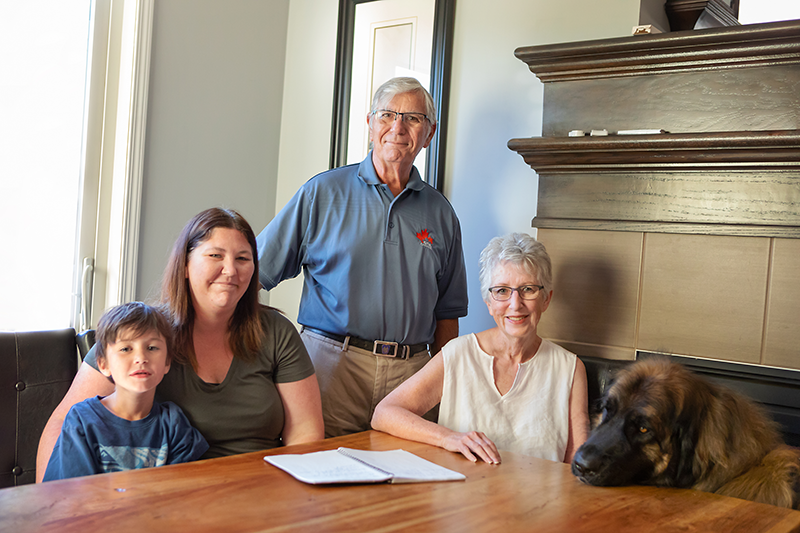Sarah, at just 35 years old, was found in her home unconscious with her young son by her side. She was rushed to the hospital where doctors began to try and unravel the complexities of her neurocritical emergency.
It took one phone call for her mom, Lynn’s, life to change too.
In speaking with Lynn, we quickly understood that unexpected events don’t just change one life – they impact the whole family. When an individual is in a medical crisis, it truly takes a village to pull together and provide the support needed. In this case, Sarah’s friends, family, medical team, and most importantly, Sarah’s Mom, Lynn, were her village.
This has not been an easy journey. How did you find the strength to provide the support that Sarah and her son, Kolten, both needed?

I don’t particularly view myself as a strong person. I am very emotional and worry far too much. I fly by the seat of my pants doing what I think must be done in the moment. During this time, I have to say, I honestly don’t know what I would have done without the support of my son, Jeff, my daughter-in-law, Alissa, and my husband, Bill. They were my strength by allowing me to fully focus on Sarah knowing Kolten was surrounded by family who had his best interest in mind.
I feel it important to acknowledge and thank family and friends for their support throughout this journey. From raising the alarm about Sarah’s absence at school, to caring for Kolten, to providing respite after long days at the hospital, to challenging and inspiring Sarah to push through her recovery and rehabilitation; thank you!
What was the journey like for you while Sarah was in Foothills Medical Centre?
The time Sarah spent in ICU is pretty much a blur and reading the notes I kept from her stay opened the floodgates to a lot of emotion – both fearful and tearful. I thought often of the day Sarah came into this world – how precious she was – so tiny – so perfect. Watching her grow up into a confident, strong young woman. Becoming a teacher, a wife, and then a mother herself. Her zest for life. Her wicked sense of humour. And then the reality hits and you’re sitting beside her full of uncertainty, seeing her in a coma, hooked up to a ventilator with all the necessary diagnostic tools around her, holding and stroking her hand, reading to her, babbling on to her incessantly about everything and anything – hoping she would just look over and tell me to “stop talking.” That was tough.
There was one day that stands out to me – I stopped stroking her hand and put my head down on the bed. I was exhausted – both mentally and physically. The next thing I remember was feeling her stroke my hand back. I knew then we were going to start moving forward. In the coming days, she started to emerge from the coma, responding to her medical team, not in words, but with that sideways glance or stern look she is so famous for.
I knew I had to put my faith in Sarah’s medical team (doctors, nurses, respiratory technicians, occupational therapists, physiotherapists, speech therapists, recreational therapists, and pharmacists) and that together, with their wealth of knowledge and experience, we would see Sarah move forward.
You have been very open with your story and willing to support the neurocritical care initiative. What motivates you to give back in this way?
The motivation to support this initiative comes from the heart. When met with the uncertainty of her diagnosis (strokes, meningitis, and hearing loss, to name but a few), her medical team’s support was relentless and unwavering. I had to put my faith in the collective expertise of all those involved in Sarah’s medical care. We are so grateful for the care Sarah received while at Foothills Medical Centre and cannot thank them enough for walking this journey with us. Because of them, Kolten has his mom, and we have our daughter; for that, we are truly thankful. This journey is far from over. Recovery is like a winding road full of starts and stops, and lots of detours. Strokes do not come with a “one size fits all” instruction manual, and recovery does not happen overnight. It can take months; it can take years; and sometimes it takes creativity and thinking “outside the box” to see even the tiniest of results. Stay positive. Be patient with your loved ones as they evolve. Please remember tough times don’t last but tough people do.


